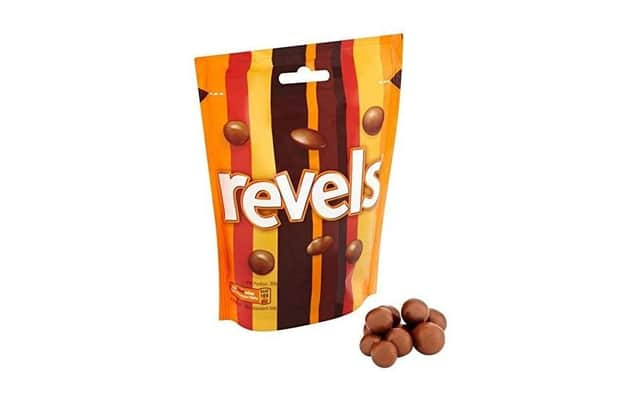Revels chocolates are being recalled - because they could contain shards of metal


Mars Wrigley is recalling batches of its Revels pouches due to fears they may contain small pieces of metal.
The possible presence of metal in the chocolate is due to a mechanical breakdown, making the product unsafe for customers to eat.
Advertisement
Hide AdAdvertisement
Hide AdWhich batches are being recalled?
The batches of Revels being recalled are the 101g pouches, with a best before date of 31 January 2021.
The affected batch codes are 006C2SLO00 and 006D1SLO00.
Mars said these are the only batches that could pose a risk to customers and all other packs of Revels, along with its other product lines, are safe to eat.
In a statement, Mars said, “This precautionary recall has been initiated with the best interests of our consumers at heart.
“We sincerely apologise for any inconvenience caused.”
Advice for customers
Customers who have bought one of the affected pouches are advised not to eat the chocolates.
Advertisement
Hide AdAdvertisement
Hide AdInstead, they should contact the Mars Wrigley Consumer Care team to arrange to return the product for a full refund. You can contact the team on 0800 952 0084, or via email at www.mars.co.uk/contactus
Alternatively, you can get in touch by post at Freepost Mars Wrigley Confectionery UK Ltd to arrange its return for a full reimbursement.
Affected packs of Revels should no longer be available to buy at any UK stores.
Food product recalls explained
If there is a problem with a food product that means it should not be sold, then it might be 'withdrawn' by the Food Standards Authority (FSA). This means that the product is taken off the shelves so that no more of it can be sold.
Advertisement
Hide AdAdvertisement
Hide AdThe FSA might also decide to “recall” the food, meaning that it is withdrawn from shelves, and customers are also asked to return the product to the shop where they bought it.
The FSA issues Product Withdrawal Information Notices and Product Recall Information Notices to let consumers and local authorities know about problems associated with food. In some cases, a 'Food Alert for Action' is issued. This provides local authorities with details of specific actions to be taken on behalf of consumers.